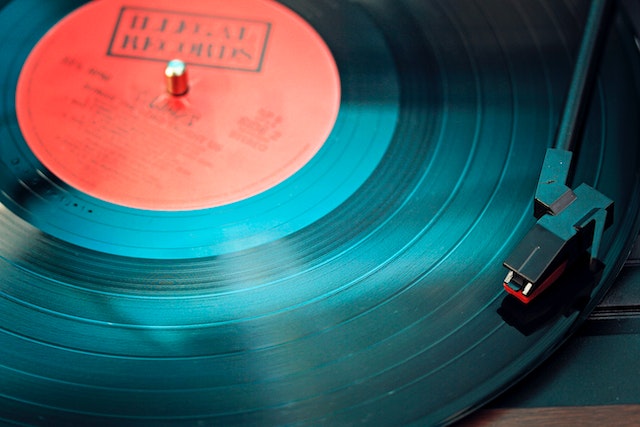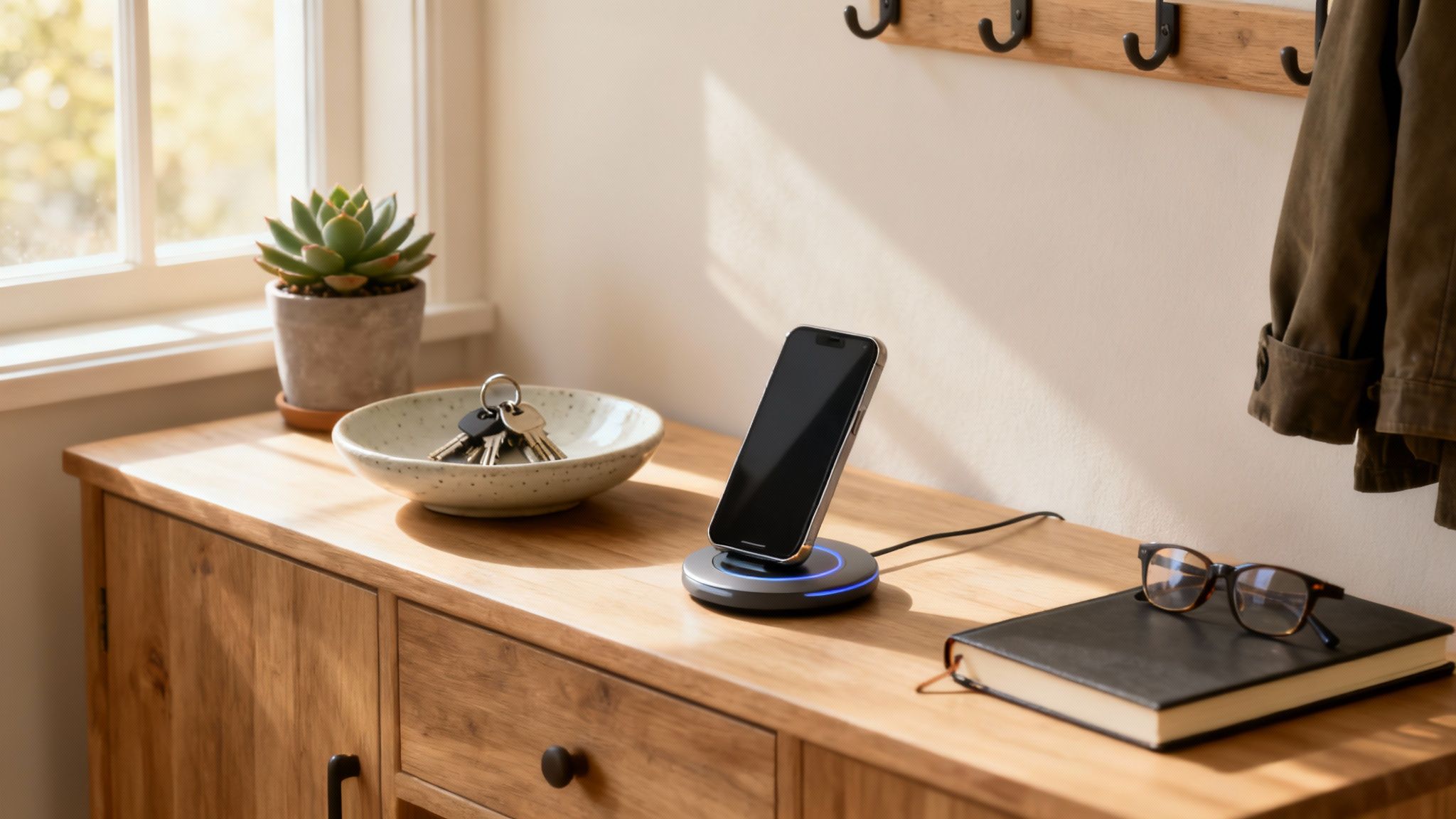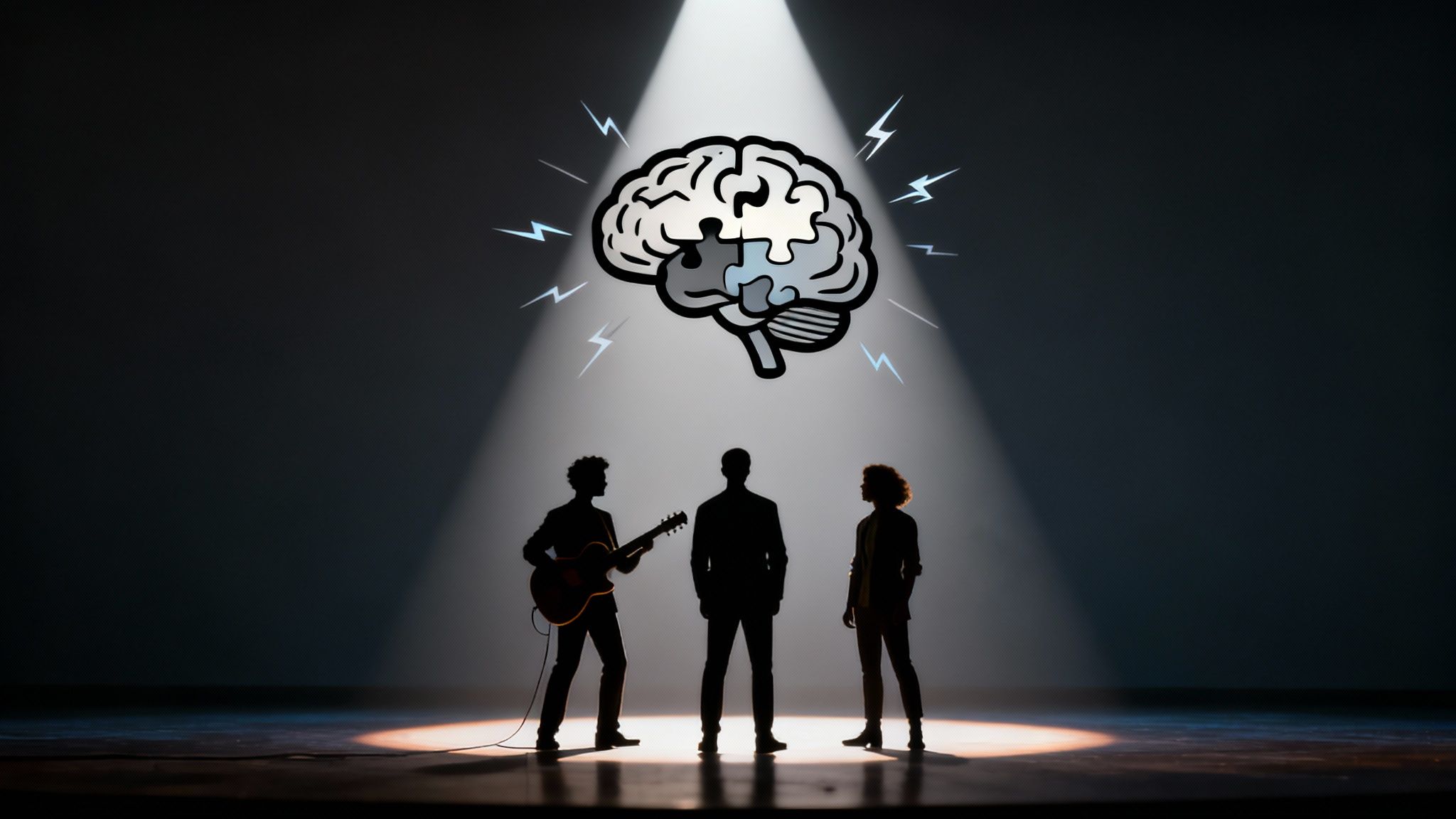It’s 3pm on a Tuesday afternoon. I just took my immediate-release Adderall, my headphones are on, my laptop is fully charged… I’m officially entering full focus mode.
But...
Before I start writing or doing any work, I have to find the perfect playlist!
Music and attention deficit/hyperactivity disorder (ADHD) very much go hand-in-hand. Music marries structure, rhythm, and timing—and since ADHD often involves challenges with time management, listening to music can sometimes help.
Need to focus? Throw some headphones on, play a happy song, and really get into it.
On the flip side, maybe you can’t focus because the environment you’re working in is playing music a little too loudly.
Like many ADHD topics, the relationship between ADHD and music can be controversial. So let’s explore how music and ADHD actually interact by eliminating the background noise.
Too long; didn't read
- ADHDers face challenges with dopamine deficiency, distractibility, and anxiety
- Music can provide a sense of external structure; used as a landmark in our day to day lives
- Music can provide little mood-boosting moments for anyone
- Find what works for your ADHD brain: EDM, classical, screamo (no judgment)
- By knowing what music makes your brain happy, calm, and focused, you’ll ultimately end up creating your perfect ADHD-friendly playlist
Your brain on music

To understand how music affects ADHD and vice versa, we need to understand how music impacts the brain in general.
How music affects dopamine levels
Music triggers the pleasure centers in your brain, which ultimately increases your levels of dopamine—the infamous neurotransmitter correlated with happiness and rewards. Dopamine levels are thought to be lower in ADHD brains, so we experience symptoms that can range from emotional dysregulation to hyperactivity.
The brain responds to music so quickly that it can anticipate the most exciting peaks in familiar music, and prime itself for an early dopamine rush.
Music and the brain
Music also activates several other areas in your brain, including:1
- The auditory cortex
- The motor system
- Brain regions responsible for memory storage and recall
Because music interacts with just about every region of the brain, it keeps neuropathways strong, which in turn promotes well-being, enhanced learning, and increased cognitive function.
ADHD and music

ADHDers often struggle with attentiveness, focus, and keeping track of time, among other challenges. Fortunately, music can help improve focus, problem-solving abilities, and overall mood.
In people with ADHD, music influences the following changes in the brain:
- Increased levels of dopamine
- Reduced anxiety
- Increased focus
- Improved stress management
- Enhanced memory
- Improved awareness of time
- Improved social skills
White noise has positive effects on ADHD and cognitive performance
In a study conducted with two groups of children - a control group, and an ADHD group - subjects were asked to complete a series of mini tasks with white noise in the background.
Participants with low dopamine levels (the group with ADHD) required more noise for optimal cognitive performance compared to the control group in the experiment.2
Binaural beats - what are they?
Have you ever listened to a song and felt the sound travel from one ear to the other?
Binaural beats are a type of auditory beat stimulation that happens when you listen to sounds at a certain frequency with one ear, and a different—but similar—frequency with your other ear. The result?
Your brain translates a sound with both frequencies and tones—or a binaural beat.
Binaural beat therapy
“Binaural beat therapy” has become an emerging form of sound wave therapy, as well as a self-help treatment route (not meant to replace traditional treatments).
Potential benefits of binaural beat therapy include:
- Increased focus, concentration, and motivation
- Reduced stress and anxiety
- Improved confidence
- Better long term memory
- Enhanced psychomotor performance and mood4
You can find a playlist of songs with binaural audio here.
Music for ADHD brains: what to play and what to skip

Music can be helpful for people with ADHD, but that comes with stipulations. For example, listening to binaural audio, background music without vocals, or chill electronic music like lo-fi hip hop can help ADHDers with focus and concentration.
On the flip side, there are some genres that might do the opposite. Avoid those at all costs.5
General rules for choosing music
You can find more detailed reasoning below, but here's the main idea:
⏭️ Skip these:
- Music with vocals
- Songs you know all of the words to
- Songs you don't like
- Radio station music
- Music from (free) streaming platforms (with ads)
- Fast-paced music*
▶️ Play these:
- Lo-fi
- Music without vocals
- Music that's easily tuned out
- Ambient music
- Familiar (but not too familiar) music
- Fast-paced music
*See below for more information
Music with vocals: skip it
If you’re trying to focus, you might find music with vocals to be distracting. This is mostly due to the fact that vocals compete for our attention, which can pull us away from the task at hand.
Music without vocals might be more suitable for a deep focus mode (hello, have you heard of the super studious, chill lo-fi girl?).
Your favorite (and least favorite) songs: it depends!
Skip them
Have you ever put on your favorite song while trying to do a task, only to find yourself singing along and dancing, and not doing said task? Avoid songs you know all of the words to if you actually want to get things done.
On the other end of the spectrum are songs you can’t stand. Avoid these for obvious reasons, but also because you’ll get distracted by thinking about how much you can’t stand the song.
Play them
Music you can tune out, or songs that easily blend into your environment, could be great to play while working. Sometimes, very familiar music (music you’ve listened to for years) could work as beneficial background music you can tune out. Other times, ADHDers need a dopamine boost to fuel motivation.
When this happens, upbeat, happy, or familiar music can provide the dopamine boost necessary to start tasks.
Music on radio stations and (free) streaming platforms: skip it
Jamming out to the radio in the car or Pandora (or any other free streaming platform) is all fun and games until the ads appear. ADHDers already struggle with focusing, so adding in distractions can disrupt a focused workflow.
Similar to music with vocals, ad breaks pull our attention away from the present moment. Stick to commercial-free streaming services!
Fast-paced music: it depends!
Skip it
This is another case of “find what works for you.”
Fast-paced music can be distracting, or even cause anxiety. Your focus could shift from the music, back to the task at hand, and back to the music - similarly to music with vocals and radio stations with commercial breaks.
When it comes to fast-paced music, continuously shifting your attention can be counterproductive. So if you're unsure how you'd fare, skip it.
Play it
On the other hand, If you’re deep in focus and find fast-paced and repetitive beats to be stimulating, play it.
Maybe your ADHD brain thrives on EDM, electronic, or other exciting beats, and you can focus on tasks even better. Fast-paced music can create a sense of urgency and motivate you to knock out those long-standing items on your to-do list and meet your deadlines.
Or maybe your friends are coming over in 30 minutes and you still need to clean your apartment—queue the energizing, fast-paced music, please!
Frequently asked questions

What type of music is 'good for ADHD?'
If the goal is to focus, the ‘best’ type of music would have some or all of the following qualities:
- Music without vocals
- Music you can easily tune out (i.e. songs that you don’t love or hate)
- Uninterrupted streaming (avoid the radio!)
Does music help ADHD students study?
It depends on the type of music and the student’s taste! Generally, when an ADHDer is listening to their optimal type of music for focusing, it can help to improve focus and memory.
Do people with ADHD listen to songs on a loop?
Not necessarily. Listening to songs on repeat is more about personal preference and less about neurotype.
Ok, then why do some people with ADHD listen to songs on repeat?
If someone with ADHD is looping the same song over and over again, it may be because they’ve found that the redundancy of a song playing in the background is what helps them focus best.
Or, they just really like the song! #hyperfocus






